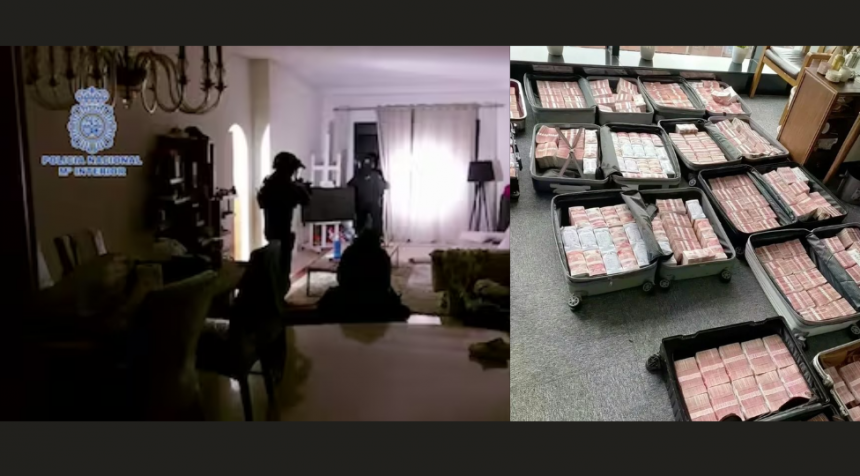Subheadline:
Over €700,000 in cash was found hidden in furniture and walls — and yet, no charges were filed.
Now, thousands are wondering: Could this be legal?
Madrid, Spain — June 2025
Police officers executing a routine financial investigation in a quiet residential neighborhood near Madrid made a startling discovery last week: over €700,000 in cash, neatly packed into sealed envelopes, hidden inside bookshelves, under floorboards, and even inside a kitchen wall.
The 52-year-old homeowner, whose identity remains undisclosed, was not involved in drug trafficking, tax evasion, or fraud — a surprise to many, including the investigators themselves.
“At first, we expected money laundering,” one Guardia Civil officer told local reporters.
“But after reviewing documentation provided on-site, we realized the source of funds was technically legal.”
The Method: Legal, But Unconventional
According to official sources, the man had been using an alternative financial strategy for the past 18 months — one that allowed him to grow and withdraw funds without relying on any traditional bank salary or business income.
He claimed the money came from a “distributed model” based on information access, timing, and digital arbitrage,” all of which were carefully documented with printed screenshots, tax reports, and a log of online transactions.
Investigators couldn’t find a legal basis to seize the funds.
“This is a legal gray area,” said attorney Diego Fernández, a financial compliance specialist in Barcelona.
“It’s not criminal, but it’s also not widely known — and that’s what makes it powerful.”
People Are Now Asking: Can Anyone Do This?
The story quickly went viral on Spanish social media platforms, and thousands of users began asking whether this “legal method” is available to the general public.
Some blogs and financial forums are now circulating a step-by-step guide outlining how individuals across Spain (and the EU) may be able to use similar financial structures to legally receive funds — with some claiming results within weeks.
“It’s not about working harder,” said a commenter under the article,
“It’s about understanding how systems move money — and stepping in at the right moment.”
Authorities Push for Reform
While the man was not arrested, authorities are now reviewing regulatory gaps that allowed such an amount of untaxed cash to accumulate.
“This situation raises questions,” said Minister of Economy Nadia Calviño in an official statement.
“We are reviewing applicable laws to ensure transparency and proper reporting moving forward.”
Conclusion
While most people never think twice about where money could legally come from, stories like this challenge the assumption that hard work is the only option.
Whether or not this loophole remains available in 2025 remains to be seen — but for now, it appears to be completely legal, and people across Spain are eager to find out how it works.
🔍 Want to see how it works for yourself? Some websites now offer free eligibility checks.









